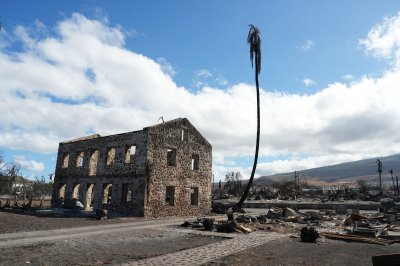Topic: Census Bureau
The United States Census Bureau (officially Bureau of the Census as defined in Title 13 U.S.C. § 11) is the government agency that is responsible for the United States Census. It also gathers other national demographic and economic data. As part of the United States Department of Commerce, the Census Bureau serves as the leading source of quality data about America's people and economy. It is the official "decennial" count of people living in the USA. The main reason for taking the census is to determine the number of seats each state is allowed in the House of Representatives. The agency director is a political appointee selected by the current President.
The Constitution of the United States (Article I, section II) directs that the population be enumerated at least once every ten years and the resulting counts used to set the number of members from each state in the House of Representatives and, by extension, in the Electoral College. The Census Bureau now conducts a full population count every 10 years in years ending with a 0 (zero) and uses the term "decennial" to describe the operation. Between censuses, the Census Bureau makes population estimates and projections. In addition, Census data directly affect how more than $300 billion per year in federal and state funding is allocated to communities for neighborhood improvements, public health, education, transportation and much more. The Census Bureau is mandated with fulfilling these obligations: the collecting of statistics about the nation, its people, and economy. The Census Bureau's legal authority is codified in Title 13 of the United States Code. In addition, the Census Bureau also conducts surveys on behalf of various Federal Government and local government agencies on topics such as employment, crime, health, consumer expenditures, and housing. Within the bureau, these are known as "demographic surveys" and are conducted perpetually between and during decennial (10-year) population counts. The Census Bureau also conducts economic surveys of manufacturing, retail, service, and other establishments and of domestic governments.
From 1790 to 1840, the census was taken by marshals of the judicial districts. The Census Act of 1840 established a central office which became known as the Census Office. Several acts followed revising and authorizing new censuses, typically around the 10 year intervals. In 1902 the temporary Census Office was moved under the Department of Interior, and in 1903 it was renamed the Census Bureau under the new Department of Commerce and the Interior. The department was intended to consolidate overlapping statistical agencies, but Census Bureau officials were hindered by their subordinate role in the department. An act around 1920 changed the date and authorized manufacturing censuses every 2 years and agriculture censuses every 10 years. In 1929, a bill was passed mandating that the House of Representatives be reapportioned based on the results of the 1930 census. In 1954, various acts were codified into Title 13 of the US Code.
It uses material from the Wikipedia article "Census Bureau."














